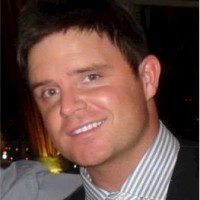
Birgit Wartenberg, Chair of the Indigenous People Partnerships, introduced today's speaker. Dave Mossman is an experienced educator and event/program manager who has been involved in event management, partnership cultivation, program development, sponsorship and marketing for over a decade. He has worked with countless individuals, not for profits and corporations to execute and manage hundreds of events, marketing campaigns and partnerships across Canada. Some of his work includes the 2011 Special Olympics Ontario Winter Games, Kids Help Phone's Annual Walk So Kids Can Talk across Ontario and Manitoba, programs and events at McMaster University and the University of Guelph, motivational speaking tours and much more. He was the President of Rotaract in Thunder Bay a number of years ago. Dave is currently teaching in Nibinamik First Nation and has started a global initiative to help spread creativity, awareness and positivity around the world during this unprecedented time.
Dave thanked all the clubs, Palgrave, Rawleigh Mill, Alliston, Wellington, Oakville, Belleville for their support in a practical sense as well as participating in today's Zoom Meeting, hosted by the Rotary Club of Belleville. Dave has been involved with Rotary through Rotaract and Rotary leadership camps for youth. He took a break from motivational speaking as he wanted to teach. Nibinamik First Nation is 500 km north of Thunder Bay and is accessible by plane most of the year and by road during the winter months when the water is frozen. It is a very remote community with 300 to 400 people residing there. They have a school, a community center, nursing services, police presence and a church. The pandemic has put an exceptional strain on living conditions. The school is closed, there are no activities at the community center and food supply is pretty stark. Dave teaches Grade 5 and 6 with 12 students in his class. Parents do not encourage their children to go to school. The biggest issue in the community, prior to COVID-19 is water. There is no drinking water available in the community due to a 2013 water advisory. There is spring water 45 minutes away or bottled water available in the schools.
Dave has met with the Band Council to get a sense as to what help is needed. He has been working on building trust with them. Supplies can be brought in by plane, but anything that has been sent by the Rotary Clubs is currently locked up and has not been distributed due to the pandemic. Fruits and vegetables are scarce. A lot of folks suffer from diabetes and are over weight due to the type of food available -- canned food, pasta, pop, chips. Dave's house is a log cabin, not insulated, but with a wood stove. Many of the house are not insulated and are collapsing as they were built many decades ago. Some families have 3 generations living under the same roof in a two bedroom home. Definitely a lack of privacy. Dave has focused on school trips so that older students can see what opportunities there are for employment, but currently any trips are suspended. He is hoping for a Fall or Spring trip and will be trying to raise funds for travel expenses. He estimates it will cost $60,000 for 20 students and adults to fly to Thunder Bay. Job opportunities in the community are limited and the current social isolation affects everyone's mental health and suicide rates are high. The drop out rate in high school is common.
So what can Rotary do to help? Supplies such as sports equipment to keep the children active are welcome, although the current restrictions do not allow children to go out at all, even to the local store. The new Chief in Council seems more receptive and open to new ways of thinking as far as receiving assistance from government and service clubs. Programs such as Habitat for Humanity might be a possibility. Certainly increased collaboration with our Club and others is needed. Dave will work on some ideas and will share with the Rotary Clubs.
A news update shortly after Dave Mossman's presentation stated a declared state of emergency at Nibinamik First Nation due to a failing diesel generating system amid the COVID-19 pandemic. Chief Sheldon Oskineegish and members of the band council explained the power outage is just one obstacle their response faces. They need essential and necessary medical resources such as health care professionals, medical supplies, testing kits and personal protective equipment, all of which are currently inadequate to mount an appropriate response to the COVID-19 global pandemic. The ability to mount a response is further impacted by the overcrowded housing, lack of isolation and assessment space, serious threat to food security and lack of reliable communication infrastructure. Frequent power outages that are being experienced on a daily basis have widespread impacts. Water and sanitization systems also require power to operate and without it, homes in the community face potential sewage back-ups, not to mention a lack of water hygiene and cleaning.
